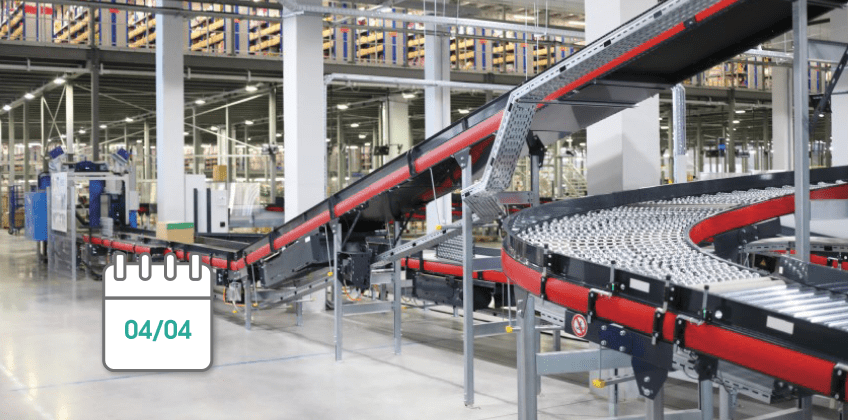Table des matières
ToggleUnderstanding the Production Chain
The production chain is a set of processes that transform raw materials into finished products. It includes various stages ranging from design to distribution, including manufacturing and quality control. In each phase, advanced technologies such as artificial intelligence and robotics play a crucial role in ensuring the efficiency and reliability of the final product.
The main stages of the production chain are:
- The design and development of the product
- The procurement of raw materials
- The manufacturing and assembly
- The quality control and testing
- The distribution and logistics
The design and development of the product rely on close collaboration between engineers and designers. This preliminary phase is essential for defining the specifications and needs of the finished product. Cloud computing solutions facilitate collaboration, enabling more agile and iterative design.
During the procurement phase, companies ensure the availability and quality of raw materials. Effective supply chain management and the use of smart contracts can significantly improve the efficiency and transparency of transactions.
Manufacturing and assembly are stages where robotics and automation technologies are widely employed. They not only increase productivity but also reduce human errors. Flexible and on-demand manufacturing is becoming increasingly common due to these innovations.
Quality control and testing are crucial for ensuring that the finished product meets high standards of quality and reliability. Predictive maintenance techniques and data analytics play a key role here by anticipating potential failures and optimizing processes.
Finally, distribution and logistics are the last stages of the production chain. Efficient management of these phases ensures that products arrive on time and in perfect condition for customers. Technologies like OPC-UA applications and smart logistics services optimize traceability and coordination among different stakeholders.
The Key Steps of the Process
The production chain is a fundamental element in modern industry, enabling the transformation of raw materials into finished products in an organized and efficient manner. Understanding this chain is essential for optimizing processes, reducing costs, and maximizing product quality.
A well-orchestrated production chain requires a deep understanding of each step in the process. This involves coordinating multiple components, including logistics, quality control, and resource management.
The production process can be broken down into several key steps:
- Product design: This initial phase encompasses research, development, and the creation of prototypes. Good design ensures that market requirements and quality standards are met.
- Procurement: Involving the acquisition of necessary raw materials, this step is crucial to avoid interruptions in the production chain. Choosing the right suppliers and ensuring the quality of materials are important aspects.
- Manufacturing: This is the phase where raw materials are transformed into finished products. This can include assembly, molding, forging, and other manufacturing techniques.
- Quality control: This step is integrated into each phase to ensure that products meet specifications and quality standards. This can include performance tests, visual inspections, and laboratory testing.
- Packaging and shipping: Once products are finished, they must be adequately packaged to ensure their protection and safety during transport. The final step is shipping to customers or retail points.
Understanding and mastering each stage of the production chain allows companies to meet market demands while minimizing errors and optimizing their resources.
Roles of Stakeholders in the Chain
The production chain is a complex process that transforms raw materials into finished products. It includes several interconnected stages, all serving a specific purpose. Optimizing each stage is crucial for improving efficiency and quality of products.
The production chain can be divided into several key phases:
- The design of the product
- The procurement of raw materials
- The manufacturing
- The quality control
- The logistics and distribution
Each of these phases requires meticulous coordination to ensure that the final product meets customer expectations and industry standards.
At the heart of the production chain, several stakeholders play crucial roles in ensuring the smooth operation of processes. Design engineers are responsible for creating and optimizing products while considering technical requirements and market trends.
Suppliers are tasked with providing the necessary raw materials. They must ensure the quality and compliance of materials based on required specifications.
Production technicians and machine operators work on the ground to manufacture products. Their task involves following standard procedures while ensuring a high level of precision and efficiency.
Quality control specialists ensure that each manufactured product meets prevailing quality and safety standards. They conduct rigorous tests and inspections at various stages of production.
Finally, the logistics and distribution managers handle the shipping of finished products to customers and distributors. They ensure that delivery timelines are met and that the supply chain remains fluid.
Optimize the Production Chain

The production chain is a crucial component in modern industry. It encompasses all the steps necessary to transform raw materials into finished products, ready to be delivered to consumers. Efficient management of this chain is essential to guarantee the quality and reliability of products. Lean production plays an important role in minimizing waste and maximizing operational efficiency.
Smart contracts can significantly improve the management of the supply chain. By automating transactions and agreements between stakeholders, these smart contracts offer complete transparency and reduce the risks of misunderstandings or fraud.
To optimize the production chain, it is crucial to focus on the following points:
- Predictive maintenance: Using real-time data to anticipate and prevent failures before they occur.
- On-demand manufacturing tools: Adopting technologies that allow the production of only what is needed, when it is needed, in order to reduce inventory and costs.
- OPC-UA: Using this interoperability architecture to standardize communication between machines and improve operational efficiency.
- Fab Labs: Leveraging these digital fabrication laboratories to quickly test new prototypes and concepts before mass production.
By integrating these elements into the production chain, it is possible to achieve high levels of productivity and quality. Adopting these practices not only improves speed and efficiency but also brings greater flexibility to meet changing market demands.
In summary, optimized management of the production chain is a crucial lever for any company seeking to remain competitive in the industry of the future. The use of advanced technologies and innovative strategies can successfully achieve this goal.
Methods of Continuous Improvement
The production chain represents all the steps necessary to transform raw materials into finished products. Each step in this chain must be optimized to improve productivity, reduce costs, and ensure product quality. In the context of the industry of the future, these objectives are achieved through the integration of advanced technologies such as artificial intelligence and robotics.
Optimizing the production chain involves continuously monitoring and adjusting processes to maximize operational efficiency. Cloud computing plays a key role in facilitating the collection and analysis of data, enabling decisions to be made based on real-time information. This optimization can also rely on predictive maintenance techniques that anticipate failures before they occur, thereby minimizing production interruptions.
Lean production and continuous improvement methods are essential for refining the production chain. Here are some commonly used techniques:
- Kaizen: A Japanese method focused on continuous improvement through small, consistent changes.
- Six Sigma: An approach aimed at reducing variability in production processes and eliminating defects.
- Just-In-Time (JIT): A strategy that reduces inventory by producing only what is necessary, when it is necessary.
Fab Labs and the use of OPC-UA in process optimization are innovations that deserve special attention. Fab Labs enable custom on-demand manufacturing, offering unprecedented flexibility in the design and production of products. Meanwhile, OPC-UA standards ensure interoperability between different systems and machines, thereby improving the integration of processes and the supply chain.
The adoption of smart contracts is also an emerging trend for improving supply chain management. These smart contracts automate and secure transactions between stakeholders, ensuring transparency and the reliability of exchanges. They also allow for more precise tracking of the production chain, ensuring that each step is executed according to defined quality standards.
Technologies and Innovations
The production chain encompasses all the stages and processes necessary for transforming raw materials into finished products. This transformation goes through various phases, including design, production, and finally distribution. Each step must be optimized to ensure smooth and efficient production.
The aim of this optimization is to improve productivity, quality, and responsiveness to market demands. To achieve a high-performance production chain, it is essential to use planning, inventory management, and predictive maintenance tools. This not only reduces production costs but also minimizes unexpected downtime.
Among the technologies and innovations that can revolutionize this field, we find:
- Artificial intelligence: Enables the analysis of large amounts of data to predict failures and optimize processes.
- Robotics: Automates repetitive tasks, thereby increasing precision and efficiency.
- Cloud computing: Centralizes data for better management and coordination of production chains.
- Fab Labs: Collaborative spaces where prototypes can be quickly designed and tested.
- OPC-UA: A universal protocol for the integration and optimization of industrial processes.
- Smart contracts: Automate and secure the management of the supply chain, ensuring the quality and reliability of products.
Integrating these innovations not only improves operational efficiency but also enables quicker responses to market demands, thereby ensuring increased competitiveness. The key lies in implementing technological solutions tailored to the specific needs of each business.





